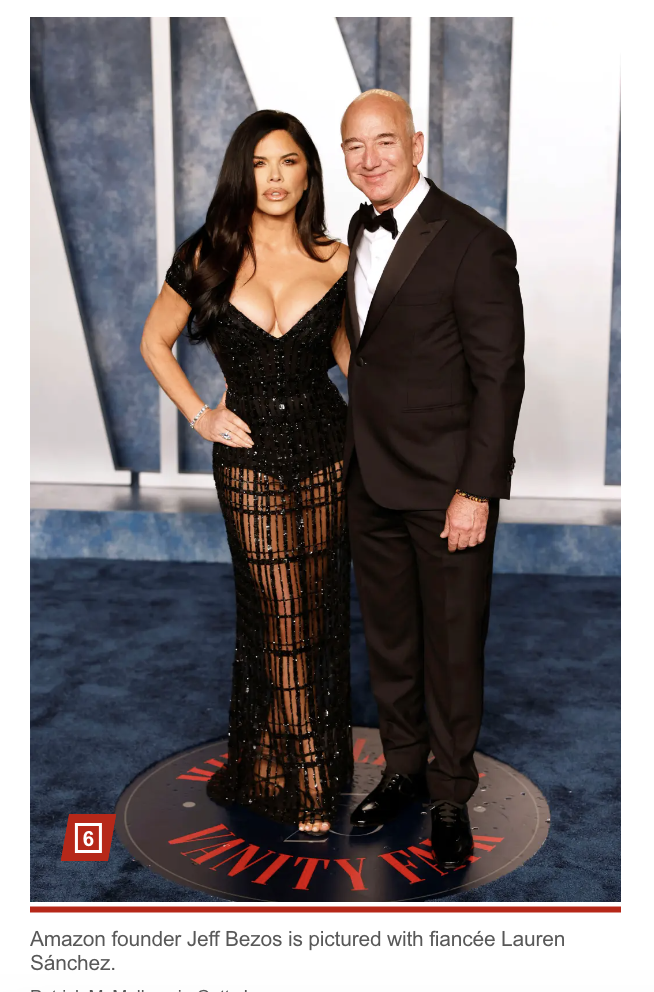This should make for an interesting question for Property Law 101 classes
/no inflated values for this guy!
From FWIW’s southern real estate experts at The Taos Tatler, this:
Homeowner who sold ‘billionaire bunker’ Miami mansion for less than asking price sues realtor for not disclosing Jeff Bezos was buyer
The man who sold Jeff Bezos his $79 million mansion in a tony part of Miami Beach is suing the realtor who handled the transaction because it concealed the fact that the buyer of the 2.8-acre estate was the Amazon founder — potentially costing him as much as $6 million, according to a report.
Leo Kryss, co-founder of Brazilian toy and electronics company Tectoy, filed suit against Douglas Elliman, whose CEO is alleged to have told the mogul personally that Bezos was not the buyer of the home, according to The Wall Street Journal.
Kryss was the owner of the seven-bedroom, 14-bathroom abode that hugs the waterfront on Indian Creek Island — also known as “billionaire bunker” whose famous residents include Jared Kushner and Ivanka Trump and football legend Tom Brady.
The Brazilian mogul bought the property, which boasts a wine cellar, library, theater and pool in 2014 for $28 million.
In May of last year, Kryss put the mansion up for sale — with a listing price of $85 million. A month later, Bezos, who has a net worth valued by Bloomberg Billionaires Index at $202 billion, bought the property located just next door — a three-bedroom, three-bathroom home — for $68 million.
A short time later, Kryss received a $79 million offer for his estate, according to the Journal. The businessman then inquired as to whether Bezos is the one who put forward the offer.
According to the lawsuit filed in Florida state court, Douglas Elliman CEO Jay Parker personally phoned Kryss and assured him that Bezos was not the buyer and that the purchaser would not agree to go above $79 million for the property.
Kryss then agreed to cut the asking price by 7.1%. But after closing, he learned that the purchaser was indeed an entity tied to Bezos, the Journal reported.
Realtors say it is common for wealthy buyers to shield their identity throughout the purchasing process due to concerns that the seller could inflate the asking price if they knew the name of the person with whom they were dealing.
Had Kryss known that Bezos was the buyer and that he intended to purchase the property next door to one he already owns, he would not have agreed to cut the listing price, according to the lawsuit.
He alleged in the court filing that “it was highly material to his negotiations and his decision on the ultimate sales price…to know whether Bezos was…attempting to anonymously acquire the home in order to assemble it with the adjoining property.”
Lots of issues here, including:
What are the actual damages, and how do you prove them? How will the disgruntled seller prove that Bezos would have paid a higher price, what was that price, and would Bezos have bought the property at all if his proffered $79 million had been rejected?
Who did Douglas Elliman represent in this transaction, the owner, or the buyer?
Does it matter?
Was Douglas Eliman’s CEO’s denial that the bidder was Bezos in fact a material misrepresentation, as the (now former) owner claims?
Will a jury really give two farts about a dispute between a couple of obnoxious billionaires?

